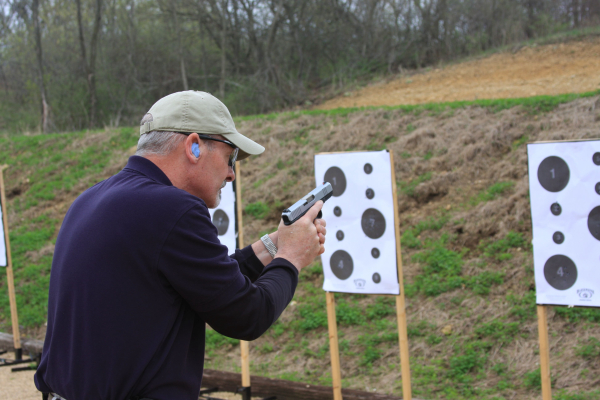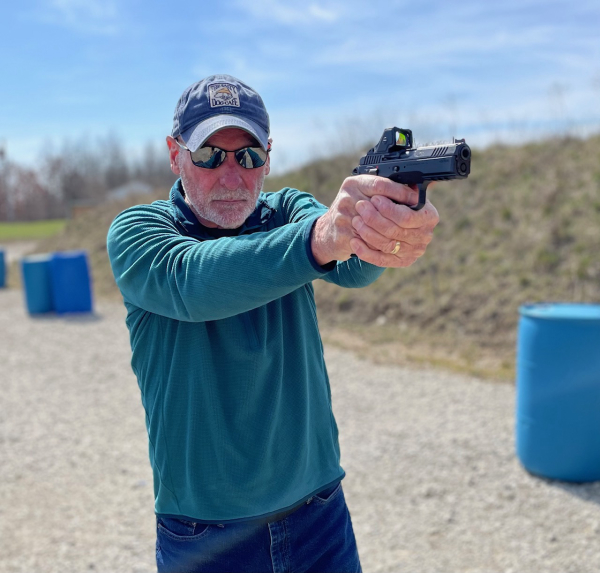Today’s feature is from correspondent Dave Spaulding.

One of the trends I saw towards the end of Handgun Combatives (as a training company) was an increased interest in foundational level courses. “Foundational” should not be viewed as "basic," something many ill-informed combative shooters seem to do, due to their desire to be seen as more "advanced." The reason I avoid the word "fundamentals" is that it sends the wrong message to many. I think we have used the word fundamentals to the point we have minimized its importance. Because of this, I use the word "essential" as the skills taught in a foundational class are just that -- absolutely necessary -- not basic or simplistic.
For a period of years, students wanted "advanced" courses, totally ignoring Bruce Lee's admonition "advanced skills are the basics mastered." That said, how many of us have truly anchored those essential, foundational level skills? If the students in my classes are any indication, very few. In every class I taught, I would go over the essential skills required for the lesson plan to be taught so the class did not bog down. It is surprising how many "advanced" shooters did not have a solid understanding of a true ready position, a combat draw, a reload, a stoppage clearance, a solid shooting platform (that allows rapid, multi-directional movement) and the like.
When I would see a deficiency, instead of getting an "oh really, how can I improve?" I will usually get a "this is how I do it." My response? "Yeah man, but you really suck at it. Just because it feels "right" or “looks cool” to you does not mean it is solid. I can help you but only if you are willing to listen.”
About 50% were willing to try something different. The rest just went on performing poorly, but looked “cool” as they did so. That said, I am happy to see a renewed interest in foundational courses. Winning a gunfight is more about adapting than it is shooting. The person who sees the fight for what it really is and adapts accordingly is the one who will prevail. Please remember, survival is not the goal.
“Adapt” is defined by Mr. Webster as "to change as necessary"- but that is not the whole story. What we are looking for is the person who is ADAPTIVE, which is defined as "The ability to change as necessary." That is easier said than done. To have the ability to adapt, one must have skills they can call on that are anchored to a level of auto pilot or what is known within the law enforcement community as "unconscious competence," something few truly achieve. Why? Because it takes a long time and a lot of work.

It's easy to go to gun school, it’s more difficult to return home and practice the lessons learned to a point of anchoring as this requires a lot of high-level repetition. This requires total focus on the skills being practiced. This is very hard for many as the other things required of us in life often interfere. Please remember, just because you attended a course on Active Shooter Response, High Threat Situation Management, Vehicle Combat, Fighting Carbine or any other similar course, does not mean you can perform what you were introduced to. You might have some recollection of what you were taught, but performing the same at a high level is unlikely.
For a student/shooter to utilize information introduced to them in a course of instruction, they must have practiced it to the point it has become a skill. They must understand how important the skill(s) are to them and put in the time and effort to master and anchor these skill(s). In truth, it is far more likely they will just have a fond memory of a good time at gun school with little chance of performing what they were taught. For some, this is enough and of course that choice is yours. To me, it is a waste of time, money and resources. Many readers will not want to hear what I just wrote, but it is the absolute truth. In closing, I want to share what my definition of a skill is:
A skill is “an activity of which you have a high expectation of success on the first attempt.” No warm ups, no do overs ... you can or you can’t. Where are your skill sets right now?
— Dave Spaulding
